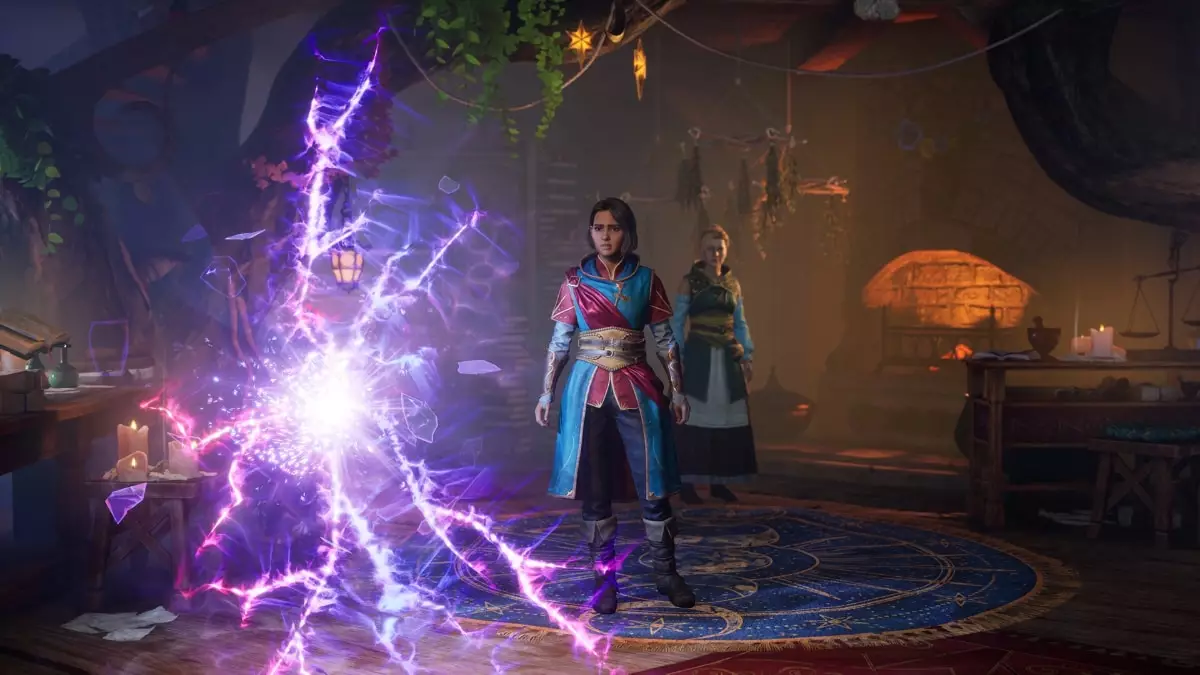In a rare move that has left many fans clapping and scratching their heads simultaneously, Electronic Arts (EA) has unveiled a GameShare feature for their upcoming title, Split Fiction, on the forthcoming Nintendo Switch 2. Announced alongside the highly anticipated console, GameShare seemingly encourages community gaming by allowing a Switch 2 owner to share a game with a friend who only owns the original Nintendo Switch. While the intention behind this feature appears commendable, critical scrutiny reveals a paradoxical scenario that raises more questions than it answers.
At first glance, this sharing model feels revolutionary in an industry increasingly focused on monetization and ownership restrictions. By allowing players to invite friends to join in the fun while only needing a single game copy, EA aims to promote the social aspect of gaming—something that has been the cornerstone of their cooperative gameplay ethos. However, if we delve deeper, we find a multitude of inconsistencies that could sabotage the execution of this feature.
Contradictions and Confusions
For starters, let’s examine the contradiction inherent in the messaging between EA and Nintendo. EA’s blog announcement made bold claims about cross-play and community-sharing, but their assurances run afoul of the clear limitations set forth by Nintendo’s own statements. While EA suggested that Switch 2 owners could easily share the game with friends using the original Switch, Nintendo hasn’t communicated the same level of certainty. If the Nintendo ecosystem historically prioritizes exclusivity and clear lines of delineation, how will GameShare actually function? Can players anticipate seamless connections, or should they brace for frustration when these expectations don’t materialize?
Moreover, while the excitement surrounding games like Split Fiction, which promise a variety of features including Friend’s Pass and cross-play options across various platforms, remains palpable, it’s essential to unpack the reality of these promises. The Friend’s Pass allows two players to engage in co-op gameplay where only one player needs to own a copy. This feature could indeed expand the game’s reach but also discourages the individual ownership model that has traditionally bolstered the industry’s revenue streams.
Community Building or Revenue Shift?
Another point of contention arises when considering the motivations behind such features. Critics have reasoned that daily gaming experiences have increasingly shifted towards generating higher revenue through a myriad of non-traditional methods such as microtransactions and downloadable content. The introduction of GameShare, then, can be seen as a double-edged sword. Is EA genuinely interested in promoting a collaborative community when the company also stands to benefit from more streamlined modes of gameplay – whereby each title’s ownership deserves scrutinization?
As the boundaries between platforms blur, and cross-play emerges as a key feature for modern gaming, we mustn’t overlook the calculated strategic decisions being made. Yes, there’s a sentimental attachment to shared gaming experiences, but let’s not be naive; transforming the traditional ownership model invites conversation about how it will alter the economics of the gaming sphere. Are we witnessing a genuine commitment to community engagement, or is this simply a smoke-and-mirrors effort to appear more consumer-friendly while obfuscating the underlying urgency of revenue generation?
Final Thoughts on the Road Ahead
The release of Split Fiction on June 5 will undoubtedly be an exploration into not just a cooperative gaming experience but also the future direction of content sharing and ownership in the gaming landscape. Will GameShare provide the anticipated benefits, or will it spiral into a territory marked by confusion and contradicting functionalities? As players prepare to embrace the potential of this new feature, they should tread cautiously, armed with an understanding of both the joys and pitfalls of this gaming paradigm shift.
In this age of rapidly evolving digital ecosystems, being critical about features like GameShare is vital. Players deserve transparency, particularly when such features reshape how gaming communities interact and monetize their experiences. It’s a complex world out there, and as gamers, we should advocate for a landscape that prioritizes genuine accessibility over transient trends.


Leave a Reply